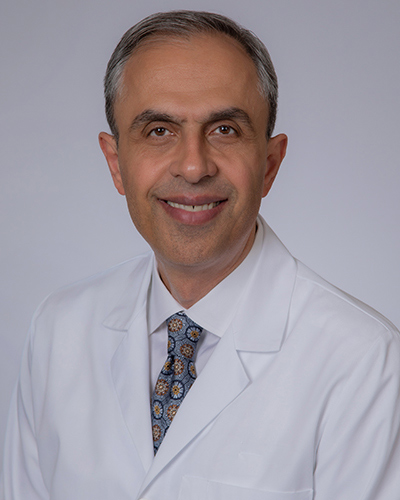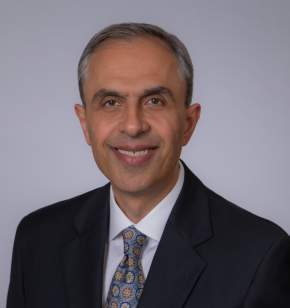Medical Management of Cavernous Malformation


There are several treatment options available for cavernous malformations, and the best approach will depend on a variety of factors, including the size and location of the malformation, previous occurrence of bleeds, as well as your current symptoms and overall health. The treatment of cavernous malformation includes primarily, observation, medications, and/or surgery.
An option is simply to monitor the malformation over time. If the malformation is small and not causing any symptoms, doctors may recommend watching it closely to see if it grows, shrinks, or changes in any way. In some cases, a cavernous malformation may remain stable for many years and never require any intervention.
If the malformation is causing symptoms, however, treatment may be necessary.Medications for cavernous malformation can be prescribed to manage symptoms such as seizures or headaches. Anti-seizure medications can help prevent seizures, while pain killers can help manage headaches.
Surgery is another treatment option. If the malformation is in a location where it can be safely removed without causing damage to surrounding brain tissue, surgery may be recommended. Surgery is the only method to provide a cure via removal of the cavernous malformation.
In some cases, however, surgery may not be possible. For example, if the malformation is located in a particularly sensitive or hard-to-reach area, surgery may be too risky. In these cases, doctors may recommend a procedure known as stereotactic radiosurgery. This involves using high-energy radiation to target the malformation and destroy it from the inside out.
What are Medications for Cavernous Malformation?
The most important medications for cavernous malformation that you will be asked to take are antiepileptic drugs (AEDs) and pain killers. Antiepileptic drugs are medications that prevent seizures from occurring. These medications work by altering the activity of certain chemicals in the brain to prevent seizures. There are many different types of antiepileptic drugs, each with its own advantages, disadvantages, and way of preventing seizures.
One of the most commonly prescribed antiepileptic drugs is called levetiracetam, which works by binding to a protein in the brain called SV2A. This medication is effective for treating many different types of seizures, but it can also have some side effects, including drowsiness, irritability, and behavioral changes.
Carbamazepine works by blocking sodium channels in the brain, which in turn helps stabilize the electrical activity in the brain and prevent seizures. Carbamazepine also is effective at treating many different types of seizures but may cause side effects such as dizziness, drowsiness, and nausea.
Another type of antiepileptic drug is valproic acid. This medication works by increasing the levels of a chemical in the brain called GABA, which helps calm overactive neurons and prevent seizures. Valproic acid is effective at treating a wide range of seizures, including absence seizures, but possible side effects include weight gain, hair loss, and liver damage. Valproic acid is not to be taken during pregnancy, as it is known to cause developmental abnormalities in the baby.
Phenytoin is another commonly prescribed antiepileptic drug. It blocks sodium channels in the brain, similar to carbamazepine, but it is more specific in the types of channels it blocks. Phenytoin can effectively treat many different types of seizures. Potential side effects include gum overgrowth, tremors, rashes, and liver damage. Phenytoin cannot be used during pregnancy.
Lamotrigine is an antiepileptic drug that works by blocking sodium and calcium channels in the brain. This medication is effective at treating many different types of seizures, including absence seizures, but some side effects include dizziness, nausea, and headaches.
As you can see, there are many different types of antiepileptic drugs available. Work closely with your doctor and follow their instructions carefully to ensure that you are getting the most benefit from your medication while minimizing any potential side effects.
Do Medications Cure Cavernous Malformation?
Medications for cavernous malformation control only the symptoms of a cavernous malformation. While antiepileptic drugs are usually effective at preventing seizures, they are not a cure for a cavernous malformation. If you suffer from drug-resistant seizures, meaning the seizures are not controlled by antiepileptic drugs, or experience worsening of your underlying symptoms, you may need surgery to remove the cavernous malformation.
Why should you have your surgery with Dr. Cohen?
Dr. Cohen
- 7,500+ specialized surgeries performed by your chosen surgeon
- More personalized care
- Extensive experience = higher success rate and quicker recovery times
Major Health Centers
- No control over choosing the surgeon caring for you
- One-size-fits-all care
- Less specialization
For more reasons, please click here.
When Are Medications a Better Option Than Surgery?
The management of a cavernous malformation depends on the size, location, and previous bleeding, as well as your overall health. Surgery is usually recommended when the cavernous malformation is in a part of the brain that is easy to access or when repeated bleeding has caused difficulty in moving your arms or legs, vision problems, or seizures. Surgery may also be advised if you have drug-resistant seizures.
On the other hand, medications for cavernous malformation are extremely useful for patients who have a cavernous malformation in deep parts of the brain that are difficult to access surgically. Medications are also useful for those whose cavernous malformation was found unexpectedly. Cavernous malformations that have bled just once, without causing any symptoms, can be treated with medications as well.
Discussing the various treatment guidelines and the risks and benefits with your neurosurgeon is important. Everyone’s case is unique, meaning everyone’s cavernous malformation journey is unique. Do not hesitate to reach out to your neurosurgeon if you have any questions or concerns.
What medications should be avoided with cavernoma?
Certain medications should be avoided if you have a cavernoma, as they may increase the risk of bleeding or other complications. Blood-thinning drugs such as aspirin, warfarin, or other anticoagulants can make bleeding more likely and should only be taken under close medical supervision.
Similarly, non-steroidal anti-inflammatory drugs (NSAIDs) like ibuprofen may also raise bleeding risk. Some herbal supplements, including ginkgo biloba or garlic tablets, can have mild blood-thinning effects and should be used cautiously. Always consult your neurologist or healthcare provider before starting or stopping any medication to ensure it won’t interfere with your cavernoma or overall treatment plan.
Key Takeaways
- Medical management of a cavernous malformation includes antiepileptic drugs and painkillers.
- Medical management is not a cure for a cavernous malformation; rather, it provides relief from symptoms.
- Medical management is especially useful for cavernous malformations that are in deep parts of the brain.
- If seizures are not controlled with medications or your symptoms worsen, surgery may be recommended.











